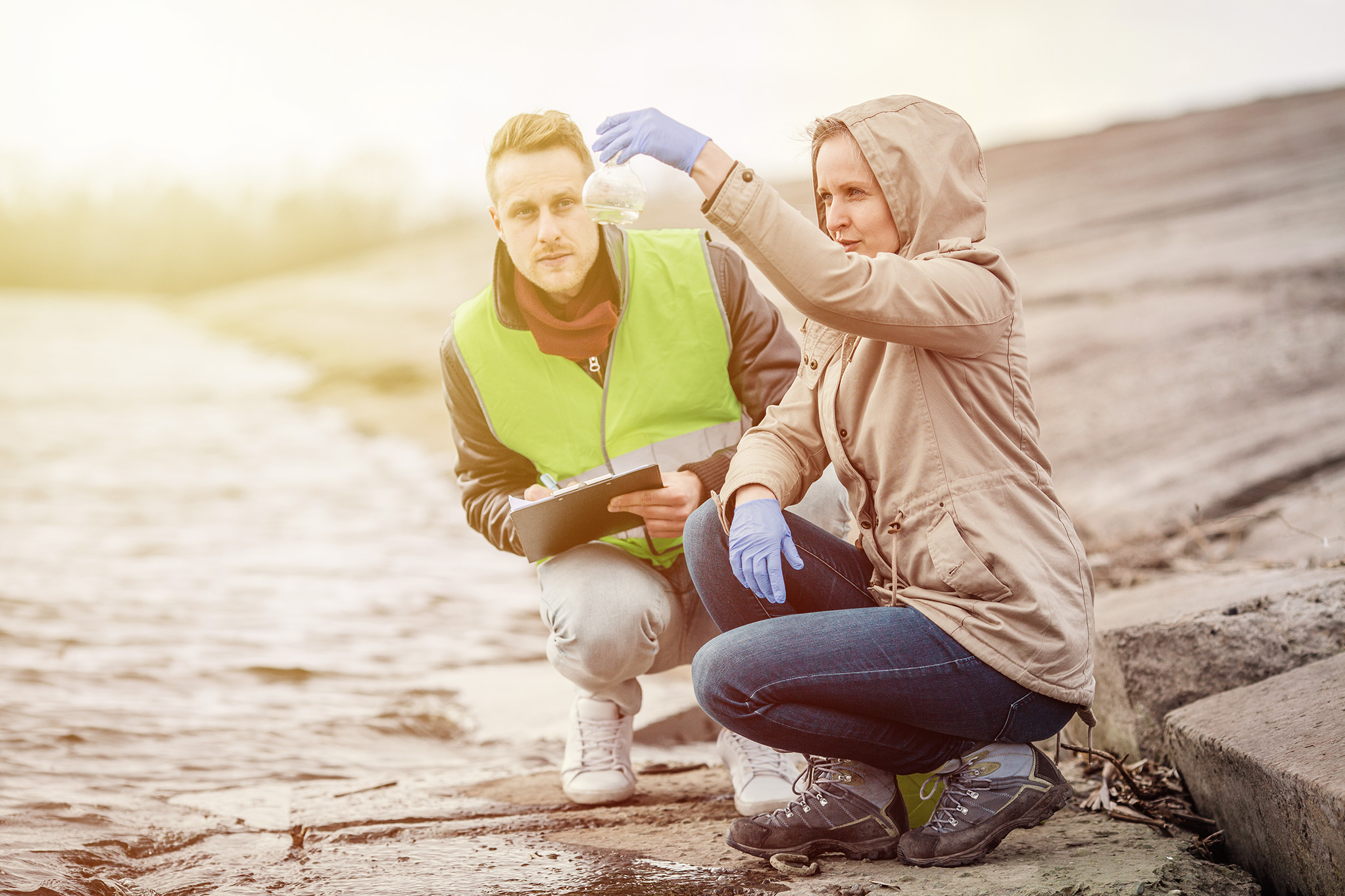A sustainable approach to water use
All paper and board manufacturing requires large volumes of water. Therefore, we conduct active environmental work in order to limit our environmental impact to the minimum.
Since water is a limited resource we make sure to use and manage it in a careful and sustainable way. We will not use more water than necessary, and the water we have used will be returned to nature in the best possible condition.
We mainly use surface water from the Motala River in our board manufacturing. Only a small amount of municipal water is used as a complement. Of the total water amount in the Motala River, our mill consumes about one thousandth. The water is necessary to dissolve the fibre material and produce stock. It is also used for washing and transporting the fibre, as well as in the production of steam for our drying cylinders and in the cooling process.

Environmental conditions for cartonboard manufacture and incineration
Fiskeby has environmental permits in accordance to the Environmental Code for both cartonboard manufacture and incineration. The permits are issued by the Land and Environment Court. The County Administrative Board of Östergötland is responsible for the ongoing supervision of the activities.
The permits states that applicable laws and regulations shall apply in parallel with the requirements of the permit. For cartonboard manufacture there are conditions for production volume, noise and water emissions such as oxygen-consuming substances, suspended substances, pH, nitrogen and phosphorus. The conditional water parameters are analysed daily in our laboratory which is certified by Swedac.
Internal control and reporting
The purpose of self-monitoring is to work preventively to minimise our impact on health and environment. The work is done through careful planning and control of the business.
The requirement for self-monitoring means that Fiskeby regularly checks the environmental impact of the business. An internal control programme has been designed based on the conditions that we have received for our operations. The programme describes how environmental controls are to be conducted, with which methods, how often, and how follow-up, calibration and reporting to authorities is supposed to be carried out. By informing the concerned authorities we keep them up-to-date with what is happening at the mill. The reporting is done monthly to the county administrative board and in an annual environmental report.
Microbiological water purification
In our part of the world the lack of water is not a big problem. The problem is rather the quality of the water. Motala River, Bråviken and the Baltic Sea are greatly overgrown. For that reason, Fiskeby is focusing on minimising the contribution of nutrients to the recipient.
In order to improve the plant’s purification of process water, we invested in a new water purification plant in 1994. The purification is done with the aid of microorganisms that break down the contaminants in the process water in different stages. The sludge formed during the water purification is separated and dewatered so it can be used for soil improvement or coverage of, for example, landfills.
Further investments have been made since 1994 in order to improve and streamline our water purification. The water purification was complemented with a biofilm stage in 1998 and a precipitation stage in 2001. We have also installed extra aeration capacity as well as a monitoring and control system for nutrients. All to ensure the quality of the water.
An additional investment was initiated in 2014 to secure the water quality of the outgoing water to the Motala River. It concerns an anaerobic water purification plant that will help reduce and stabilise our water emissions, mainly with regard to oxygen-consuming substances but hopefully also nitrogen and phosphorus. At the same time as process water purification is done, biogas is produced. The intention is to use the biogas internally at Fiskeby and reduce the use of purchased electricity.
Coordinated recipient control provides better overall picture
Companies that influence the environment are obliged to investigate the environmental impact of their processes. This often refers to a larger geographical area and different businesses can agree on a so-called coordinated recipient control.
Fiskeby’s area is the Motala River’s water basin which extends from Vättern to the Baltic Sea. Fiskeby fulfills its recipient control by being a member of Motala River’s water conservation association. The association has a control programme developed in consultation with the County Administrative Board. The annual report describes the status of the area and is available on the association’s website. The goal is to ensure good water quality and provide a basis for effective action programmes.
EU Water Framework Directive
The EU Water Framework Directive came into force in 2000 and aims at achieving long-term sustainability in lakes and streams. According to the directive not even half of EU surface waters meet the requirements for good water status.
In order to avoid chemical contamination of outgoing water, Fiskeby continuously overhaul the chemical products used at the mill. There are restrictions set for the use of eco-friendly chemical products, and we monitor and control the EU Water Framework Directive annually. We do not use chemicals that are identified as priority substances.
Regional water council
Fiskeby is actively involved in the Water Council of Lower Motala River and Bråviken. The municipality of Norrköping started the water council in 2010.
The water council aims to concretise the improvement work and facilitate regional and local work on water issues based on basin areas. Fiskeby’s inlet of water and reversal of treated water lies within the water council’s area.
